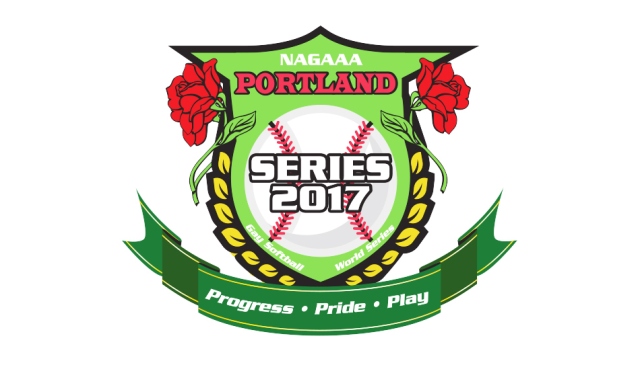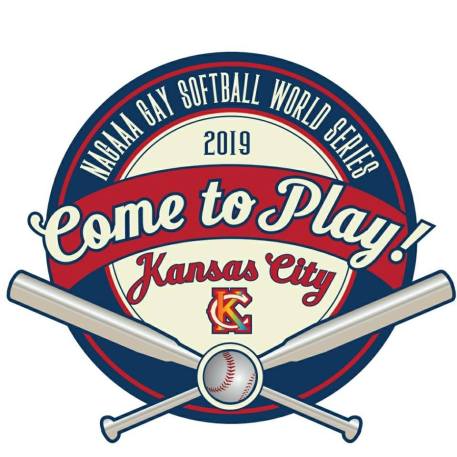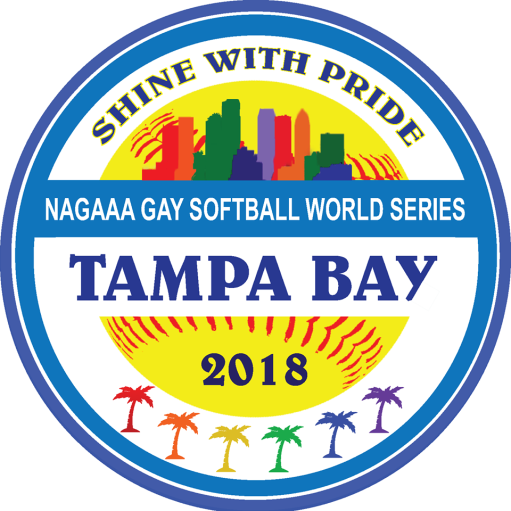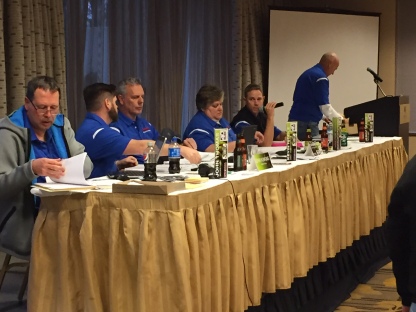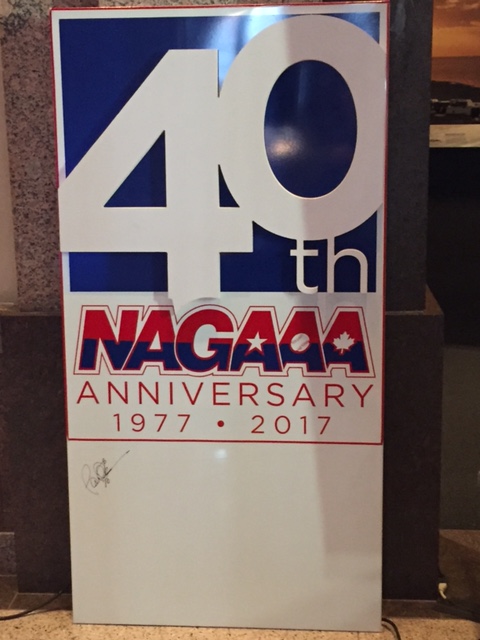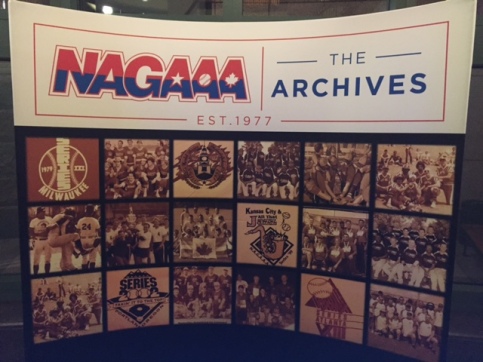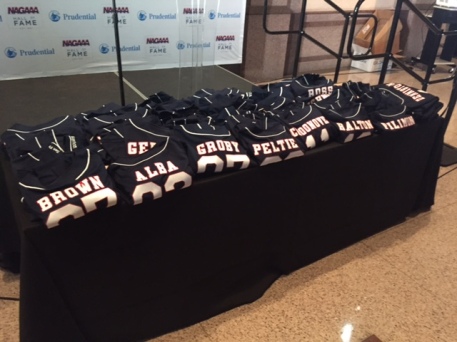I grew up the son of a basketball coach in Kansas. My first memories of athletics were my Dad picking me up from school before the occasional afternoon basketball practice. I would shoot on the side goals in the gym while he directed his players on the main floor. I’d help him run the clock during practice, do the laundry, check stats from the game video and I spent countless hours thumbing through NCAA Division I Men’s Basketball team media guides.
My Dad has coached at the high school, junior college and NAIA levels for over 25 years. It was important to him during his junior college coaching years to get as many media guides from major four-year programs as he could so that his players always had the information in front of them to take the next step in their basketball careers and lives. I think that’s where I caught my affinity for writing, learning, information and communication. I read those media guides so many evenings while he would work late at the office. So much in fact that I became a walking men’s college basketball encyclopedia. I would go on road trips with his teams from time to time and his players would always try to stump me with odd ball questions like, “What arena does Wright State University play basketball in? (It’s the Nutter Center, by the way.) They rarely caught me without a correct answer. During the road games I’d fold the warm ups and get the players towels and water. We’d pick up a fast food meal on the way out-of-town and burn rubber heading back home.
All of those late weeknight and long weekend trips as a kid were tough sometimes, but I loved every second of it. I enjoyed being involved with sports and basketball in particular. I was living the good life as a young kid getting to hang around a college basketball team, but little did I know that I was getting a master class in managing and working with people. Those experiences have come in handy throughout the remainder of my life to this point. If I could have done anything differently, I would have paid attention more and I paid attention plenty!
Throughout the rest of my childhood, sports became an even bigger part of my life. My brother and I played just about every sport we could. My Dad never really pushed us or told us we had to play. We liked it and we were good at just about everything we did. However, my brother was much better than me. I always envied his height and athletic ability. He was an outstanding basketball and baseball player. Football and golf were more in my wheelhouse. Athletics taught me a lot about people and about what social norms were supposed to be. Later I would realize that sometimes sports can teach us the wrong lessons too.
High school came and went quickly with me finding my way as an athlete, girlfriends and school dances. It was a pivotal time in my life. I knew I was different and from time to time several others questioned that. Somehow I usually found a way to diffuse a tricky situation that made me feel bad about who I knew I was, but even then it became increasingly harder to hide my feelings.
Young adulthood proved to be the hardest point of my life as I started to doubt my goal track given that I was attracted to the same-sex. I was on my way to becoming a major college basketball coach, or at least I thought I was. I joined my Dad’s staff as a team manager and later a student assistant. My summers were filled with working basketball camps at the University of Kansas among other programs in the region along with AAU tournaments and high school basketball all-star games. I even coached high school football for two years after I turned down the opportunity to play college football myself. While I eventually gave up my dream of being a college basketball coaching star I learned valuable lessons in those years about how important connecting with people really is.
One of the more important moments in my life came while I was a student at the University of Kansas. I was fortunate enough to work in the athletics department at KU while I was in school. It was a dream come true for a young man who grew up a Jayhawks fan, cheering on Roy Williams’ teams and the fantastic program he built throughout the 1990’s and beyond. I watched every heart breaking NCAA tournament loss and I rarely missed a game. As I approached that magical age of 21, I should have been having the time of my life, but I was suffering from a sickness. I was lying to myself and to so many people around me about who I was and who I loved.
The weight of my secret became to heavy to bear. I wanted out. I wanted to be normal. There were countless nights spent staring at the ceiling in bed, tears welling up in my eyes wondering why I felt the way I did all the while confused about my life and my future. Eventually I made the choice that I didn’t want to live anymore. It got too hard to bear the burden of my shame. I knew there was no place for an openly gay man as a leader of men in athletics and I wasn’t getting a lot of support from the people I thought I needed it from the most. Luckily, I walked myself off of that ledge and made the decision to come out to my immediate family and friends. I felt like a boulder had been removed from my shoulders and life improved for a short while. The problem became that I felt lost in a whole new way because I had resigned myself to the fact that there wasn’t a place for me in sports due to who I was.
Fast forward a few years to 2008. It was a good year for many reasons. My Jayhawks won the Orange Bowl, beating Virginia Tech to go 12-1 (yes, I’m talking Kansas football) and our basketball team won its first National Championship in 20 years when they beat Memphis in overtime. I was fortunate enough to be there in person for both of those events. It’s something I’ll always remember and treasure. Later that summer I had begun dating a guy. One evening he called me to offer an invitation to come watch his slow pitch softball game in Shawnee, Kansas. The following afternoon I pulled into the parking lot at Mid-America Sports Complex without a clue that the single biggest moment in my life would be coming up very shortly.
I walked through the gates and made a left to go to fields 5 through 8 where they were playing. I arrived to a scene that I will never forget. Full softball teams completely made up of LGBT people playing sports, being uniquely themselves and enjoying the benefits of team sports in a safe environment. That scene, that snapshot in time changed my life. That was the day that I joined the North American Gay Amateur Athletic Alliance. The next spring I joined a thrown together team of new misfit players just to get out on the field. The relationship with the guy didn’t work out, but my love of NAGAAA was born from it.
That image of people who were just like me participating in sports openly and at a competitive level was emblazoned in my mind. I started to become more involved with my local league in Kansas City, meeting many friends that I still have today. I would start my first stint on the Heart of America Softball League board just a year after I joined the league. The more that I involved myself in my local league the more strides I made in my personal life. It allowed me to accept myself and to show those people the door that didn’t want to accept or understand my struggle.
Before I knew it I was managing a team and in my first year in that role our team qualified for the Gay Softball World Series. I was 25 and still trying to figure life out. Everybody matures at a different rate and my maturation process still needed time to cook. Needless to say, we were a rag-tag group. The majority of the team were first year players that were younger than 26. We brought the minimum amount of players and it was a struggle to get ten players to go.
There wasn’t money for flights to Columbus, Ohio. We packed a Toyota Corolla with four guys, three of us living in Lawrence, Kansas driving to pick up a teammate in Kansas City on the way to the tournament. None of us had vacation time or job tenure. We couldn’t leave until Monday night due to our work schedules as most of us were in service industry jobs and in school. Our late departure from Kansas City meant we would miss GSWS Opening Ceremonies, something that we didn’t really understand the significance of at that time, but later would. We drove all night only stopping for gas in Saint Louis, Missouri and Terre Haute, Indiana.
We passed the sign for Dayton, Ohio on I-70 as the sun was coming up on Tuesday morning at around 7 am. Our car filled with weary travelers arrived at the Hyatt Regency and after parking the car we passed out for a 90 minute power nap before putting on our uniforms to head for Lou Berliner Park. We were exhausted. That was to be expected considering we had just driven over ten hours through the night. We arrived at the ball park, our overnight travel scars visible by way of our haggard looking faces.
When we arrived, the game that was on the field before ours had started. Pittsburgh was a NAGAAA member city then and their D team was playing. Players were able to take naps on picnic tables to get a little more rest in because a Pittsburgh player broke his ankle sliding into second base. An ambulance had to remove him from the field and he was carted off after around a 30 minute delay. After the field delays, it was finally our time to shine. Our first opponent was the Houston Wave. A big polar bear type of man from their team came over and introduced himself as their manager. The umpire came over soon thereafter to check bats and do the coin flip before the current game on the field was over to try to get the field back on time.
The Houston manager smiled at me and said, “First time here?”. I said yes and he told me that he knew it. I was a little nervous and he picked up on that. We said “good luck” and went back to our teams. In my mind I was thinking to myself that their uniforms were better, their roster was bigger and we were about to get our butts handed to us straight away. I was already trying to figure out what I was going to tell my guys if we got run ruled so they wouldn’t think it was a waste of time to come to the tournament.
Then the game started. 30 minutes later we had won by run rule 18 to 3. Their coach was gracious in the handshake line and said, “You boys really want to be here, good luck.” He was right. We did want to be there. We had driven all night to be there and by the end of that first game I knew that I was going to come back to every Gay Softball World Series I could for the rest of my life. It ended up being one the best weekends of my life. Columbus was a fabulous host city. Looking back on it from a visitor’s point of view, I would have never guessed it was their first time hosting.
Since that tournament I’ve had the privilege of growing as an individual while the organization of NAGAAA grew too. I’ve been able to become a leader in my local league in Kansas City as a board member and tournament director. I started travelling to NAGAAA member city tournaments in 2012 and that only increased my want to be more involved. To date, I only have 13 more tournaments to go to attend them all and I intend to reach that goal in the very near future. After several years, I began this blog to highlight the organization that I had grown to love. I’ve had tremendous opportunities from gay softball along with the privilege of knowing and working with some of the best people I’ve ever met in my life. I know that there will be many more memorable people in the future that I have yet to meet.
My story is the story of NAGAAA. It’s about a young man who was lost. Someone that had left himself for dead emotionally and physically, finding himself through the community that we have built-in and around gay softball. NAGAAA didn’t just change my life, it saved my life. I believe in my heart that I would not be here today had I not watched that first softball game in 2008.
Sharing my experience is partly therapy and partly my way of telling people what this organization does for its members, prospective members and what it means to people all across North America. I carry these memories with me in everything I do, but especially when I carry out business on behalf of my league and on behalf of NAGAAA. These experiences shape my purpose and fuel my work to ensure that this organization is around for another 41 years for young men or women that find themselves in a similar situation to mine.
Maya Angelou said, “People will forget what you said. People will forget what you did, but people will never forget how you made them feel.”
NAGAAA made me feel wanted, important and worthy at a point in my life when I didn’t want myself. If there is one thing I’ve learned as a gay man it’s that there is no better time than the present to tell your story and live your truth. That is the power of what we’ve all created with our gay softball community and to my NAGAAA family I say, tell your story and live your truth. We’re here for you always.
Jeff Sloan founded the Diamond Dish Softball Blog to promote gay softball in 2014. He has been a NAGAAA member for ten years and hopes to be for the rest of his life.

